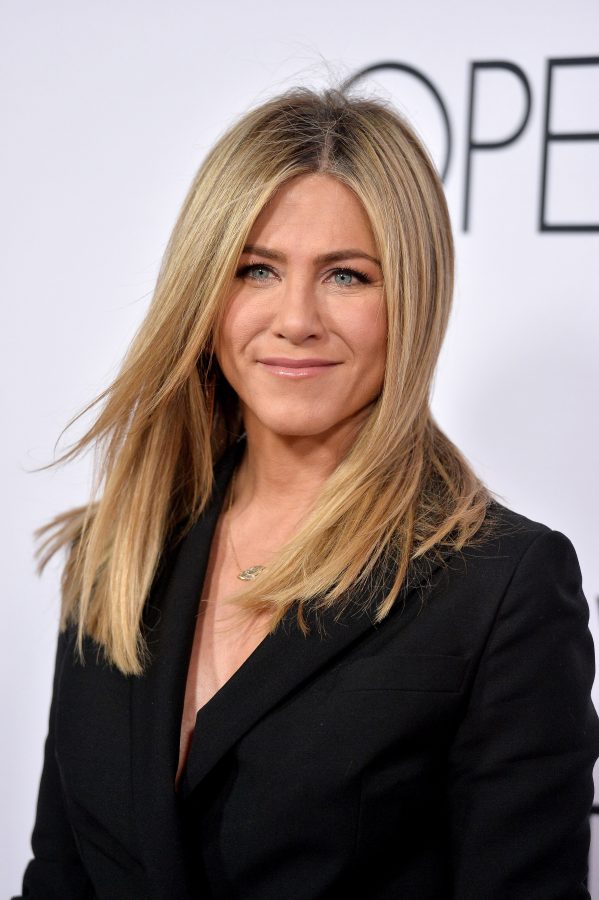I was recently trying to decide, amongst my group of male friends, if there was a definitive “it” girl, a woman in film or television or culture-at-large, who seems to collect all the attention — a Bo Derek, Pamela Anderson, Farah Fawcett, Audrey Hepburn-type who captures the celebrity zeitgeist. Margot Robbie, Scarlet Johansson and Jennifer Aniston were all answers among a myriad of others, but no singular name emerged. It seemed impossible to consolidate our thoughts into a single, unanimous vote.
This, admittedly, is a foolish, chauvinistic exercise, but it is harmless enough. Young people, even in a larger way than just a subset of ogling males, look to single out a catch-all idol, a culmination of all their cultural aspirations in a particularly perfect person. It’s a subjective exercise, but one that has existed since the advent of the image. It is a source of endless fascination and manipulation.
Semiotics dominate our lives so much that it becomes difficult to discern original from planted thought. Recognizing reality through film, archetypes and television scenarios is a telling metric of where our collective psychology lies. Media’s influence on reality collapsed into the single most disastrous irony of our time: reality television.
Pictures, specifically motion pictures (the dynamic sibling of the static, cosmeticized image), haunt every corner of modernity. Mediation does not suffuse reality; it has replaced it. We are a mediated nation, a mediated world, not only absolutely controlled by images, but inundated by them in a way that leaves little original air to breathe.
Discerning a singular cultural icon from the morass was at best an attempt, and at worst a simple-minded gas lighting, guided by our own wishful naiveté. Failure in executing such a task is telling. It is not only the inundation of content and things to choose from, but also their immediate platform-based diffusion that makes us a) unable to think of all we’ve consumed, mushing everything into crude feeling and dashed memory, filled with gaps and guilt, and b) indecisive because of all that is left unconsumed, all the empty coffers that we feel could impact a decision. We are both incessantly informed and incessantly deprived, a duality that leaves one stupefied and guilt-ridden in the face of decision. Gluttony is paired with privation, it seems. Brimming with low-, medium- and high-quality content, our minds can no longer sift through it all, and if they can, the exhaustion that sets in leaves no space for critical evaluation. The catalogue is so massive that it becomes unnavigable, an anodyne relic that detracts from criticality by fraying the mind a thousand times over. Assessment becomes an impossible proposition. Paralysis sets in. A photographic memory is in order. To be able to call-up multiple catalogues of information, all glimpses or impressions of media skimmed, frustrates and disembowels the intellect. It makes one feel dumb. The mind is at once the full-bellied king and the drawn-and-quartered imbecile. It cannot form around anything, collect and synergize, because it is a gluttonous sieve.
How do we fix this, how do we begin to organize our thoughts, and henceforth ourselves, out of the attractive confusion, out of imposed stupidity? We, I guess, must adventure and seek out new and original experiences that fuse themselves eventually into the human, the authentic. That is the only way, I think, that we approach being fully human, fully sensate, in a world that finds itself more and more an impotent, hackneyed slave to the technological god.











Hank Wordsworth • Nov 9, 2018 at 4:03 pm
“How do we fix this, how do we begin to organize our thoughts, and henceforth ourselves, out of the attractive
confusion, out of imposed stupidity?”
So try this book. It made Sissy Spacek work for me.
https://www.barnesandnoble.com/w/desires-right-and-wrong-mortimer-j-adler/1112303712